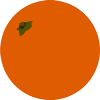fall 2014
Table of Contents
Return to Home Page
In my version of heaven![]() Adrienne Drobnies
Adrienne Drobnies
When I Call My Mother Matthew Walsh
The Old Guys at the Pantry, Breakfast, 5 A.M. Mark Jackley
Brooklyn Botanic Garden![]() Jason Primm
Jason Primm
Ode to Change![]() Nicole Hoelle
Nicole Hoelle
Prey Mitchell Krockmalnik Grabois
It's Usually Something Like This K.V. Skene
Never Quite Coming of Age in Pontiac Michigan![]() Glen Armstrong
Glen Armstrong
White Goddess![]() Afterward
Afterward![]() Nettie Farris
Nettie Farris
Ode to Change
Change is the way some of us stay the same through it all,
while in some ways turning to something
completely different, the way
R turns up cold and hard
as the snow breaking against the backs of Boston’s shores,
a hardened rock of a jewel
in the middle of her face now—beautiful but
not in that same way she was
across the then sugary dark
Change is what keeps happening
over and over again,
as though it’s new or different,
the people who step out in the form of shadows,
the shadows that repeatedly step out
from behind the years,
unrecognizably alive
and still named Jack or Judy or Mom
but really they’re just leftovers—
the last remaining spots or impressions.
Remember, Harry, that time I came running up to your house at 2 a.m.
and busted the window?
maybe it was winter, maybe it was summer,
all I know is the night
was blank as bedsheets and I
was 25 and jumping inside, yelling outside for you,
Harry, because there was something that felt like
a jellyfish sliding around inside me
and I needed to stop it—there were empty spaces and
I needed to fill them.
And, so, I hung outside your window like an extra raving curtain
blasting back and forth in the dark.
Remember that, Harry?
Remember that then your dad came outside, your dad who
reminded me of Sidney Lumet—
hunkering, saying in slow, sliding words, “you just need to relax.”
“Tell her to get outta here!” you then yelled from inside your dark, throbbing room where you listened
to music that sounded like chainsaws,
your voice popping like bottle caps inside your room.
I cried into your dad’s shirt and all over the front lawn by the Chevy and the Volvo.
“Here, come on, just have one of these,” he said, handing me a Xanax or an Ativan,
wobbling back and forth on monstrous feet, feet that now stick out from strange slippers
in one of those extra white, urine-soaked hallways
where men and women wander delirious, singing, yelling,
moving like many arms and legs—out of shape, out of tune.
“Hey, Art, can you believe it? That this is happening? This
whole life, that it comes to this?”
But he’s not here. He’s either standing somewhere far behind
proclaiming the absurdity of aging
or maybe acting out some one or other of the “tough Jews,” as he called them—Lansky maybe
and maybe it’s right around Chanukah and Christmas and he sloughs off both of them
with a swat of his hand. And maybe it’s still too early for him to have taken one of his glory
drugs—Benzos or Barbs. And maybe you and I, Harry, are not fighting in the background
but rather laughing, and waiting for something big to happen,
for this great big life to begin.
